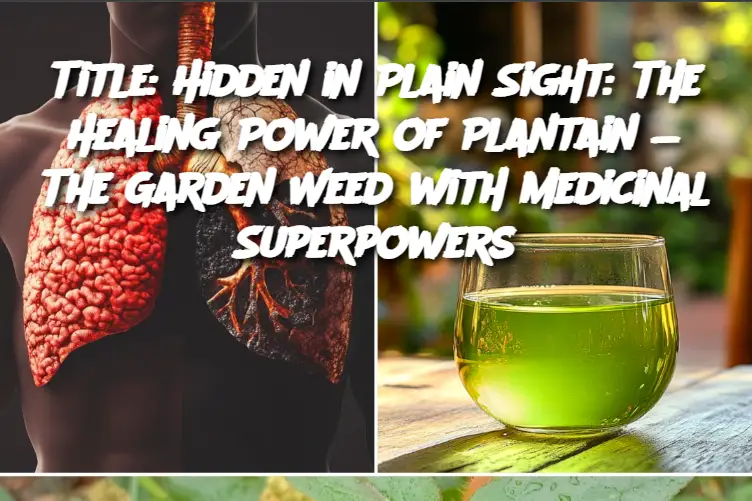1. Plantain Poultice for Bites, Burns, or Cuts:
-
Wash a few fresh leaves thoroughly.
-
Crush them with a mortar and pestle or chew lightly (traditional method) to release juices.
-
Apply directly to insect bites, stings, minor cuts, or irritated skin.
-
Cover with a clean bandage and leave on for 1–2 hours.
2. Soothing Plantain Tea (for Digestion and Coughs):
-
Boil 1 cup of water.
-
Add 1 tablespoon of dried or 3 fresh chopped leaves.
-
Steep for 10–15 minutes, then strain.
-
Drink warm, up to 2 times per day.
3. Plantain Oil Infusion (for Skin Healing):
-
Fill a small jar with clean, chopped leaves.
-
Cover with olive or coconut oil.
-
Seal and let sit in a sunny window for 2–3 weeks, shaking occasionally.
-
Strain and store the infused oil in a dark bottle.
-
Use on dry skin, minor wounds, or rashes.
Serving and Storage Tips:
-
Use Immediately: Fresh poultices and teas are most effective when made and used the same day.
-
Store Oil in a Cool Place: Infused oil keeps up to 6 months if stored away from heat and light.
-
Dry Leaves for Later: Air-dry leaves and store in an airtight jar to use year-round for teas and infusions.
Variants (Other Uses of Plantain):
-
Plantain Salve: Combine infused oil with beeswax to make a portable, long-lasting healing balm.
-
Plantain & Calendula Blend: Combine with calendula petals for added skin-soothing effects.
-
Edible Addition: Young leaves can be added raw to salads or sautéed like spinach for a nutrient boost.
-
Plantain Vinegar Rinse: Steep leaves in apple cider vinegar for a soothing hair or skin rinse.
FAQ:
Q: How do I identify plantain in my yard?
A: Look for low-growing rosettes with broad, oval leaves and parallel veins. It often has tall, thin seed stalks rising from the center.
Q: Is it safe to use plantain every day?
A: Yes—plantain is generally safe for topical and internal use in moderate amounts. As with any herb, consult your healthcare provider if you’re pregnant, nursing, or taking medication.
Q: Can I use dried leaves instead of fresh?
A: Absolutely! Dried plantain retains many of its properties and is great for teas and oil infusions.
Q: Is this the same as the banana-like fruit “plantain”?
A: No—this is Plantago major, a leafy herb. It’s completely different from the starchy cooking banana called plantain.
Q: Can children use plantain remedies?
A: Yes! It’s gentle and safe for kids. A poultice is perfect for bug bites, and tea can help soothe a sore tummy (in small amounts).
